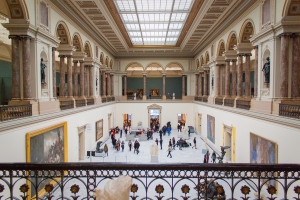Green light from the Consultation Committee for the national recovery plan
 © Photo News in Le Soir
© Photo News in Le Soir The Consultation Committee today kicked off the Belgian "Recovery and Resilience Plan". A management structure has been agreed, according to which the federal government will work closely with the federated entities. The first working groups will meet again this week.
On 20 July, the European Council reached an agreement on the European Recovery Plan, providing for €337 billion in grants and €385 billion in loans. "Over the next two years, our country will receive €3.4 billion in grants, with a further €1.75 billion to be added in subsequent years. This is a very significant amount, totalling more than five billion euros", said Prime Minister Alexander De Croo.
He added: "A plan that wants to pass the European Commission's test must be a plan that strengthens and renews our economy. In this respect, cooperation with the private sector will play a crucial role, so that we use European money as a lever for renewed growth. Return on investment and job creation will be the key. This is also why we are going to ask the Planning Bureau and the National Bank to evaluate the plan".
Quality and coherence
There are clear conditions attached to European subsidies. "The quality and coherence of our national plan will be decisive if we want to be eligible for European money. The European Commission will look into the matter and will decide, after receiving the opinion of the Economic and Financial Committee, on which all Member States sit. Hence the importance of the approach we have agreed on today. The federal and entity governments will work side by side in five thematic working groups. Our projects must be mutually reinforcing, regardless of
where in the country they are carried out," says State Secretary for Economic Recovery Thomas Dermine.
The second important point is that the investments must be in line with the reforms.
"The political heart of the European recovery plan is characterised by linking investment to reforms. Europe will only pay out the tranches of subsidies when a Member State has also made progress, for example in the labour market, in terms of pensions or reducing CO2 emissions. These areas of work for each Member State are recorded in the European Semester and the National Climate Plan. ", continues Alexander De Croo.
In the coming weeks, the federal government would like to have a first version of the plan for discussion with the European Commission. By the end of the year, the intra-Belgian distribution key will have to be ready, providing for a fair regional distribution of the projects. The final version should be submitted to Europe by April.
"The tight timing does not stop there. The amounts must be committed by the end of 2023 and the investments made by the end of 2026. This is extremely ambitious when it comes to infrastructure deployment," Thomas Dermine said.
Five thematic working groups
The Secretariat of State for Recovery and Strategic Investments has been designated as the technical contact point with the European Commission in the framework of the elaboration of the Recovery and Resilience Plan (RRP).
In preparation for the plan, five working groups will be set up: climate, digital, mobility, human and society, and productivity. In addition, three cross-cutting working groups will be active: finance and budget, economic impact and international outreach.
The five thematic working groups and the three cross-cutting working groups will report to the Political Support Committee composed of members of the federal government and the governments of the federated entities. The final decision on the national plan will be taken by the Consultative Committee.
"The first working groups will meet again this week", concludes State Secretary for Economic Recovery Thomas Dermine.

